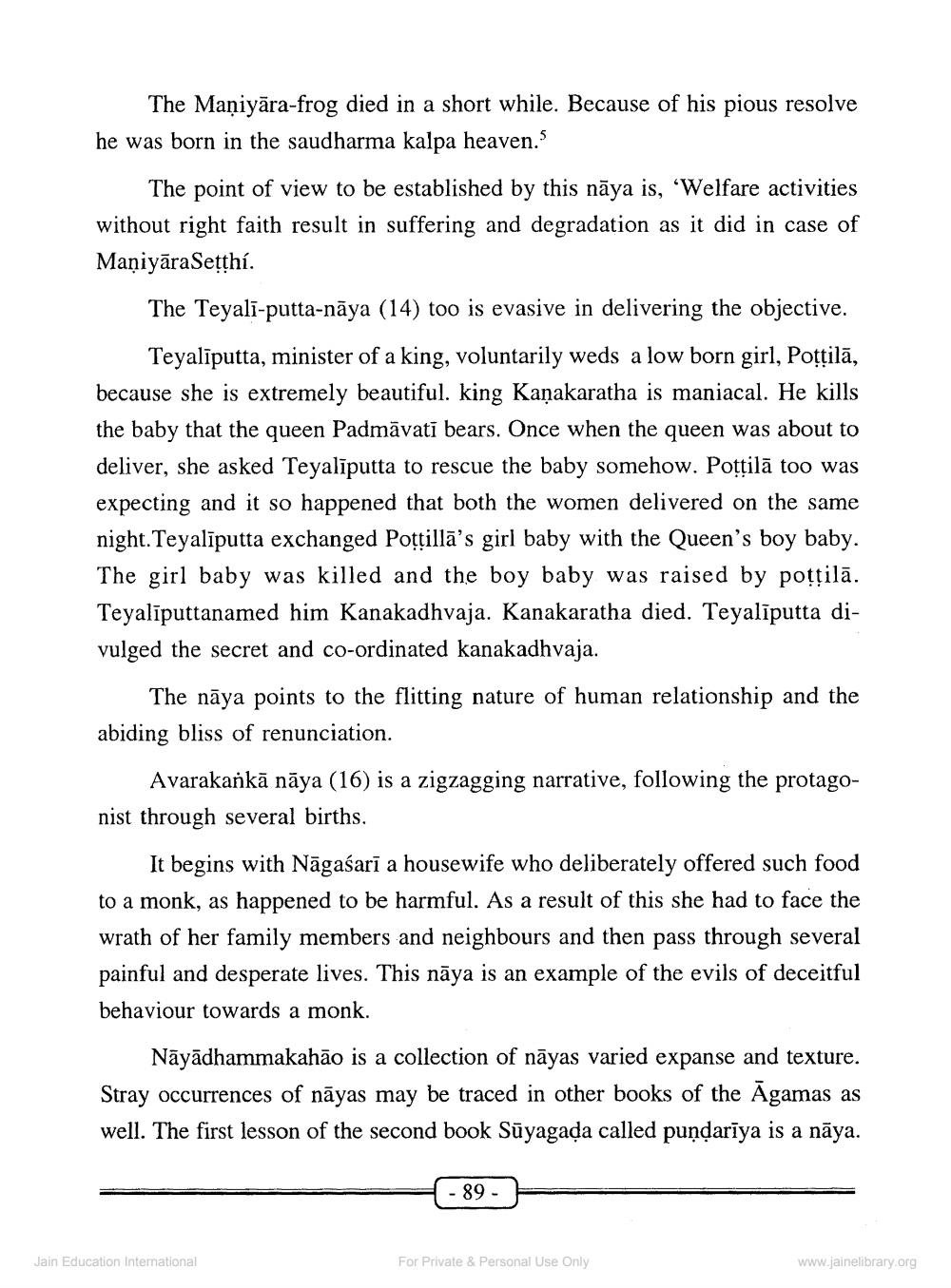________________
The Maņiyāra-frog died in a short while. Because of his pious resolve he was born in the saudharma kalpa heaven."
The point of view to be established by this nāya is, 'Welfare activities without right faith result in suffering and degradation as it did in case of ManiyāraSetthí.
The Teyalī-putta-nāya (14) too is evasive in delivering the objective.
Teyalīputta, minister of a king, voluntarily weds a low born girl, Poțțilā, because she is extremely beautiful. king Kaņakaratha is maniacal. He kills the baby that the queen Padmāvatī bears. Once when the queen was about to deliver, she asked Teyalīputta to rescue the baby somehow. Potțilā too was expecting and it so happened that both the women delivered on the same night. Teyalīputta exchanged Poțțillā's girl baby with the Queen's boy baby. The girl baby was killed and the boy baby was raised by poțțilā. Teyalīputtanamed him Kanakadhvaja. Kanakaratha died. Teyalīputta divulged the secret and co-ordinated kanakadhvaja.
The nāya points to the flitting nature of human relationship and the abiding bliss of renunciation.
Avarakankā nāya (16) is a zigzagging narrative, following the protagonist through several births,
It begins with Nāgaśarī a housewife who deliberately offered such food to a monk, as happened to be harmful. As a result of this she had to face the wrath of her family members and neighbours and then pass through several painful and desperate lives. This nāya is an example of the evils of deceitful behaviour towards a monk.
Nāyādhammakahāo is a collection of nāyas varied expanse and texture. Stray occurrences of nāyas may be traced in other books of the Āgamas as well. The first lesson of the second book Sūyagada called pundarīya is a nāya.
- 89 -
Jain Education International
For Private & Personal Use Only
www.jainelibrary.org




